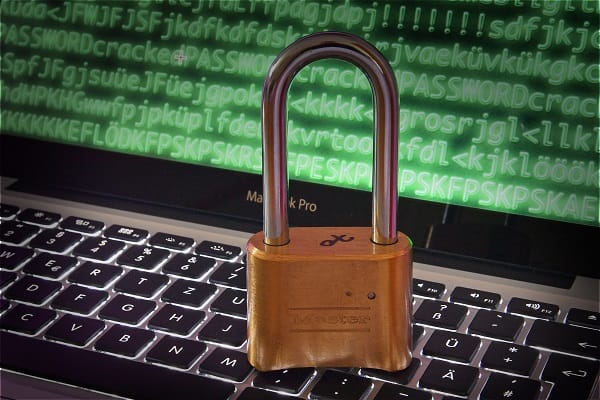In a connected world, we can do just about anything online. Whether you’re banking, watching Netflix, or chatting with friends over social media, it’s important to make sure that your accounts are as secure as possible.
To do so, you need to use the right passwords, but unfortunately, not everyone understands how to create strong passwords. It’s not as difficult as you might expect, and if you’re worried about how you’re going to remember your passwords, we’ll be showing you the perfect tool that will help you to keep track of them.
Passwords are a vital part of the defensive system that your accounts use to keep cybercriminals out, so it’s important that you make sure to get your passwords right the first time. If your password is stolen it’s already too late – a cybercriminal can do a ton of damage as well as lock you out of your account before you know it.
Why your password could be at risk
Many people don’t understand how much their accounts could be at risk. The main reason for this is because they create weak passwords that hackers can easily guess if they’re able to get the right information.
Some people use their names and date of birth, others use the name of a pet or a family member. Using these passwords might be easy to remember, but it does put your account at risk of being hacked. With enough digging, a cybercriminal will be able to get hold of any of this information.
Another reason why many people put their accounts at risk is that they use the same passwords for multiple accounts. This means that if one of your accounts has been breached, the cybercriminal is likely to try the same password on other accounts. If it works, then you have multiple accounts that have been infiltrated by cybercriminals.
Some internet users also choose easy questions and answers for their password reset. Questions such as “what was the name of your first pet”? Hackers can easily gather this type of information by scouring your social media pages, especially if your accounts have not been set to private.
How to create strong passwords
To prevent cybercriminals from being able to guess your passwords, you need to make sure that you create strong passwords. You can create strong passwords by using words or phrases that do not relate to any of your personal information.
You also need to make sure to use random numbers and symbols in your passwords for extra strength. This will make your passwords much more secure. Studies have shown that the strongest passwords are made up of completely random words and numbers, and you might be able to remember these as well.
If you want to create an even stronger password you can create a mix of letters, numbers, and symbols to form a sort of code. Remember to use a variety of capitalised letters and lowercase letters in your passwords.
How to create unique passwords
To keep all of your accounts secure you need to make sure that you also use unique passwords. No two accounts can have the same password, as this could put both of your accounts at risk of a cybercriminal stealing your login credentials.
It’s important to have unique passwords, but many people do not follow this rule because they prefer to use easier passwords that they can remember for all of their accounts. Ultimately it’s not worth the risk when you consider how many accounts you will need to frantically try and secure once a breach has taken place.
How to keep track of your passwords
If you’re using strong and unique passwords you might be wondering how you’re going to keep track of them all. After all, you’re designing your passwords to be more difficult to guess and remember, which means that you likely won’t be able to remember any of them.
Luckily there’s a great tool that you can use to solve this problem – a premium password manager. You might be thinking to yourself: “my device already has a password manager installed”.
While that is true, the default password manager on your browser or your device is not as secure as you might think. Cybercriminals are often able to break into these password managers and steal all your passwords without your knowledge.
Premium password managers are much more secure because they can only be accessed with a password. When you create your account with a premium password manager you can be given a randomly generated “master key”. You are the only person that has access to this master key, and because it’s randomly generated, it’s impossible for a cybercriminal to get hold of it.
Whenever your list of passwords is accessed from a new device or a different location, your master key is required first. As long as you keep hold of your master key you will have access to all of your passwords at the touch of a button, and they are secured in a ‘virtual vault’ that is sure to keep all of your passwords safe.
Extra safety measures
If you’re still worried about cyber criminals being able to get into your bank accounts or gain access to your emails, there are a few extra steps that you can take to ensure that your accounts remain as secure as possible. If you implement these safety measures, no one else will be able to get into your accounts without your knowledge.
The first step you can take is to activate your login notifications. This feature will notify you whenever someone logs into your account, and if it wasn’t you, then you know that you need to take action. This feature can save you precious time and prevent the cybercriminals from doing too much damage to your account.
You can also use two-factor authentication, which will require you to use two devices to log in into your account. When logging into an account from your laptop, for example, a code will be sent to your smartphone, which you will then have to enter on the laptop before you are given access to your account. Without your smartphone, no one can log into your account, making it even more secure.






Leave a Comment